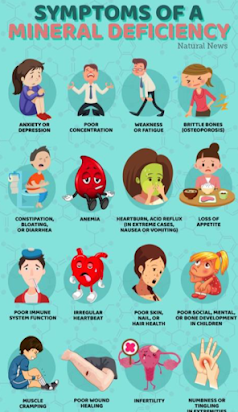What is minerals
Minerals in food are essential inorganic nutrients that your body needs in small amounts to function properly. Unlike carbohydrates, fats, or proteins, minerals don’t provide energy, but they are vital for many physiological processes such as building bones, making hormones, and regulating your heartbeat.
✅ Types of Minerals in Food:
Minerals are divided into two main categories:
1. Macrominerals (needed in larger amounts):
Calcium – builds strong bones and teeth; found in milk, cheese, leafy greens.
Phosphorus – works with calcium in bones; found in meat, fish, dairy.
Magnesium – helps muscles and nerves work; found in nuts, seeds, whole grains.
Sodium – regulates fluids and blood pressure; found in salt, processed foods.
Potassium – important for muscles, including the heart; found in bananas, potatoes.
Chloride – helps with fluid balance; found in salt and many vegetables.
2. Trace Minerals (needed in smaller amounts):
Iron – essential for red blood cells; found in red meat, beans, spinach.
Zinc – supports immunity and wound healing; found in meat, dairy, legumes.
Copper – involved in energy production; found in nuts, seeds, whole grains.
Iodine – crucial for thyroid function; found in iodized salt, seafood.
Selenium – antioxidant role; found in Brazil nuts, seafood.
Fluoride – strengthens teeth; found in fluoridated water.
🥗 Why Minerals Are Important in Your Diet:
Prevent deficiencies like anemia (iron) or osteoporosis (calcium).
Support immune function, nerve transmission, and muscle contraction.
Help with enzyme and hormone








Comments